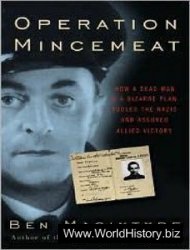In 1798 Napoleon Bonaparte led French troops into Egypt, quickly capturing Alexandria and Cairo. The French occupation lasted only three years; in 1801 the returning Ottomans defeated the small force left behind by Napoleon. In 1805 a young Albanian commander, Muhammad 'Ali Pasha, was appointed governor for the Ottoman Turks. Over the next forty years he modernized the Egyptian government, establishing western trends in economic and social life. In the process he gained a large degree of autonomy from the disorganized Ottomans. As Muhammad 'Ali was on the brink of declaring independence for Egypt, Great Britain intervened to support the decaying Ottoman Empire.
Thirty years later Egypt came close to independence again un-
1994 People's Assembly adopts environmental protection standards to go into effect in
1998.
1997 (Oct.) Agricultural land rents are no longer fixed at 1952 rates.
1997 (Nov.) Six Islamic militants attack tourist buses in Luxor, killing fifty-eight foreigners and four Egyptians.
1998 (May) Thirty business leaders announce founding of Cairo Peace Movement to expand contacts between Egyptians and Israelis.
1998 (Dec. 1) Human rights leader Hafez Abu Saada is arrested, charged with
Accepting funds from British human rights organization to defame Egypt.
2000 (Jan.) Muslims kill twenty-one Christian Copts in the town of Sawhaj.
2000 (June) Saad Eddin Ibrahim, chair of Egypt's Ibn Khaldoun Center for Developmental Studies, is arrested for criticizing the Egyptian government.
2001 (Feb. 5) Sawhaj court convicts the killers of the Copts and sentences them to one to ten years. Critics claim the light sentences demonstrate discrimination against Christians in Egypt.
2001 (May) Saad Eddin Ibrahim is sentenced to seven years at hard labor by the
Egyptian State Security Court.
2001 (Sept. 11) Members of the al-Qaeda network hijack American airliners, destroy
The New York World Trade Center and damage the Pentagon in Washington,
D. C. A number of the top leaders of al-Qaeda are from the Egyptian Islamist movement.
2003 (Jan.) Egyptian police arrest fourteen leaders of the banned Muslim Brotherhood,
Accusing them of organizing student demonstrations against a new American-led war in Iraq.
Der Ismail, a grandson of Muhammad 'Ali, only to be subjected to British and French control, this time in response to heavy foreign debts. After Ismail's death a nationalist military leader, Colonel Ahmad 'Urabi, developed a strong popular following and threatened to take control from Ismail's successor. The ruling khedive (Ottoman governor) called for outside help, and British troops occupied Cairo. From this time Britain maintained close supervision over Egypt and from there acquired rights over the Sudan by conquest. When World War I broke out in 1914, British forces assumed full control of their Egyptian "protectorate."
The years between 1919 and 1952 were active and frustrating ones for the Egyptians. The end of World War I and the push for democracy in the world by U. S. president Woodrow Wilson encouraged nationalist leader Saad Zaghlul to build a political following in support of independence. Britain, however, stood firmly against this move and sent Zaghlul into exile in March 1919.
After spending a month putting down a popular rebellion, Britain reversed the decision and permitted Zaghlul to return. Three years later, Britain reluctantly granted Egypt limited autonomy under a new 1923 constitution, with its friend Sultan Fuad (a descendent of Muhammad 'Ali) as king. The popular leader Zaghlul and his nationalist Wafd Party won the first parliamentary elections, but Britain quickly forced him to resign after the assassination of the British commander of the Egyptian army in 1924.
This pattern continued over the following thirty years until the Free Officers' Revolution of 1952 finally brought independence to Egypt. However, this frustrating period was filled with political activity by groups of citizens who demanded a voice in running their own government. In 1928 Sheikh Hassan Al-Banna established the Muslim Brotherhood to support Islamic religious activity in society and to counter the secular politics of Zaghlul. This organization became a source of Islamic militancy and violence that was to plague Egyptian governments from the 1930's through the end of the twentieth century.
After King Fuad died in 1936 and was replaced by his son Farouk, Britain lost a local ally on whom it could rely for support against the increasingly demanding and hostile local population. With mounting pressure from Adolf Hitler's Germany, Britain signed an Anglo-Egyptian Treaty in 1936, giving effect to a partnership rather than protectorate role. Nevertheless, the British retained effective control through their influence over King Farouk and the presence of British troops stationed throughout the country.
World War II and its aftermath prepared the way for the 1952 revolution. The British could no longer fill the officer ranks within the Egyptian military with British officers, and therefore they created an officer school for training Egyptians to lead their own armed forces. Gamal Abdel Nasser and Anwar Sadat were among its first graduates. Moreover, after World War II the British public was focused on rebuilding their own economy and society after the devastation of the war, and they set about to dismantle their colonial empire.
The opening of the Suez Canal in 1869 shortened the sea route between Great Britain and its Indian colonies. India and Pakistan's independence from Britain in 1947 meant that maintaining control of the Suez Canal was no longer as essential to Britain's national interest as it once had been. When the Egyptian army lost to Israeli troops in Palestine in 1948-1949, the corruption and incompetence of King Farouk and his court outraged most Egyptians. The British suffered a great loss of respect as a result. In January, 1952, the British army attacked suspected Egyptian guerrillas, killing fifty and incurring widespread anti-British riots. The stage was set for independence.




 World History
World History









